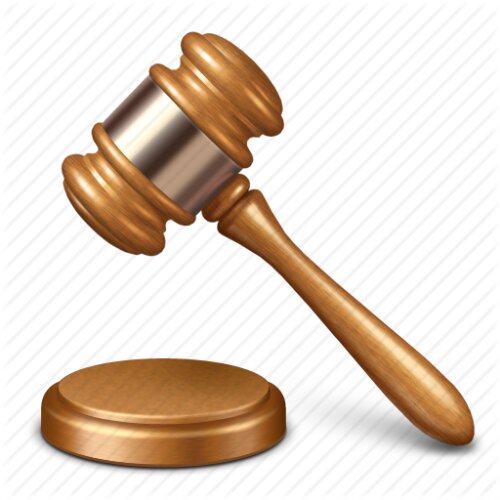Best Wrongful Termination Lawyers in Pretoria
Share your needs with us, get contacted by law firms.
Free. Takes 2 min.
List of the best lawyers in Pretoria, South Africa
About Wrongful Termination Law in Pretoria, South Africa
Wrongful termination refers to the unfair dismissal of an employee for unlawful reasons or in violation of the employment contract. In Pretoria, as in the rest of South Africa, wrongful termination falls under the broader category of unfair dismissal as regulated by the Labour Relations Act 66 of 1995 (LRA). This law ensures employees are treated fairly and provides mechanisms for addressing grievances. Employees who believe they have been wrongfully terminated can seek recourse through the Commission for Conciliation, Mediation, and Arbitration (CCMA) or the Labour Court for resolution.
Why You May Need a Lawyer
There are numerous situations where an individual may need legal assistance in cases of wrongful termination. These include:
- If you are unsure whether the termination was lawful or not, a lawyer can provide clarity on your situation.
- When an employer terminates your employment without following the proper procedure as outlined in your contract or under the LRA.
- If you suspect discrimination as a reason for your termination, based on race, gender, age, or another protected characteristic.
- When an employer fails to provide reasons for termination or does not comply with notice period requirements.
- If you want to know your rights to compensation or reinstatement.
Legal advice is crucial in navigating these processes, particularly when entering into negotiations or preparing for legal proceedings.
Local Laws Overview
The Labour Relations Act 66 of 1995 is the cornerstone of employment law in South Africa, including wrongful termination. Key aspects include:
- Fair Reasons: Termination must be based on fair reasons related to conduct, capacity, or operational requirements.
- Procedural Fairness: Employers must follow a fair procedure, including a proper hearing, before dismissal.
- Notice Period: Under the Basic Conditions of Employment Act, an employee is generally entitled to a notice period unless dismissed for serious misconduct.
- Retrenchment: Specific procedures must be followed for terminations based on operational requirements, including consultation with employees.
Frequently Asked Questions
What constitutes wrongful termination in Pretoria?
Wrongful termination occurs when an employee is dismissed without a valid reason or if the employer fails to follow a fair process as stipulated under the Labour Relations Act.
Can I challenge my termination if I believe it was wrongful?
Yes, you can challenge your termination by taking your case to the CCMA or the Labour Court. Legal advice can be beneficial to navigate this process.
How much time do I have to file a claim for wrongful termination?
You generally have 30 days from the date of dismissal to file a claim with the CCMA.
What remedies are available if my termination is found to be wrongful?
You may be entitled to reinstatement, re-employment, or compensation if your dismissal is found to be unfair or wrongful.
Is discrimination a valid basis for claiming wrongful termination?
Yes, termination based on discrimination for reasons such as race, gender, or age can be considered wrongful under South African law.
Can I be terminated without notice?
Termination without notice is generally permissible only in cases of serious misconduct. Otherwise, the employer must provide the required notice period as per your employment contract.
What is constructive dismissal?
Constructive dismissal occurs when an employee resigns due to the employer's intolerable conduct, essentially forcing them to leave.
Does my employer need to provide reasons for my termination?
Yes, under the LRA, an employer is required to provide reasons for the dismissal that are both valid and fair.
Can I seek legal help if I am retrenched?
Yes, if you believe the retrenchment process was not conducted fairly, you can seek legal assistance to challenge the process.
What factors do the CCMA and Labour Court consider in wrongful termination cases?
Factors include the reasons for termination, whether fair procedures were followed, and if the employer acted in compliance with employment laws.
Additional Resources
For further assistance in wrongful termination cases, consider contacting:
- Commission for Conciliation, Mediation, and Arbitration (CCMA): An entity that deals with labour disputes.
- South African Labour Guide: Provides comprehensive guidance on legal rights in employment.
- Department of Employment and Labour: Offers resources and support for employment-related issues.
- Local attorneys specializing in employment law: Legal professionals who can offer personalized advice and representation.
Next Steps
If you believe you have been wrongfully terminated, consider the following next steps:
- Document Your Case: Collect all relevant documentation, including contracts, termination letters, and any communications with your employer.
- Seek Legal Advice: Contact a lawyer specializing in employment law for a case evaluation and advice on proceeding.
- Submit a Claim: File a dispute with the CCMA within the prescribed timeframe to potentially settle the matter through mediation.
- Prepare for Proceedings: If necessary, prepare for conciliation, arbitration, or legal proceedings with the help of your lawyer.
Being informed and prepared can significantly impact the outcome of a wrongful termination case, ensuring your rights are protected.
Lawzana helps you find the best lawyers and law firms in Pretoria through a curated and pre-screened list of qualified legal professionals. Our platform offers rankings and detailed profiles of attorneys and law firms, allowing you to compare based on practice areas, including Wrongful Termination, experience, and client feedback.
Each profile includes a description of the firm's areas of practice, client reviews, team members and partners, year of establishment, spoken languages, office locations, contact information, social media presence, and any published articles or resources. Most firms on our platform speak English and are experienced in both local and international legal matters.
Get a quote from top-rated law firms in Pretoria, South Africa — quickly, securely, and without unnecessary hassle.
Disclaimer:
The information provided on this page is for general informational purposes only and does not constitute legal advice. While we strive to ensure the accuracy and relevance of the content, legal information may change over time, and interpretations of the law can vary. You should always consult with a qualified legal professional for advice specific to your situation.
We disclaim all liability for actions taken or not taken based on the content of this page. If you believe any information is incorrect or outdated, please contact us, and we will review and update it where appropriate.















